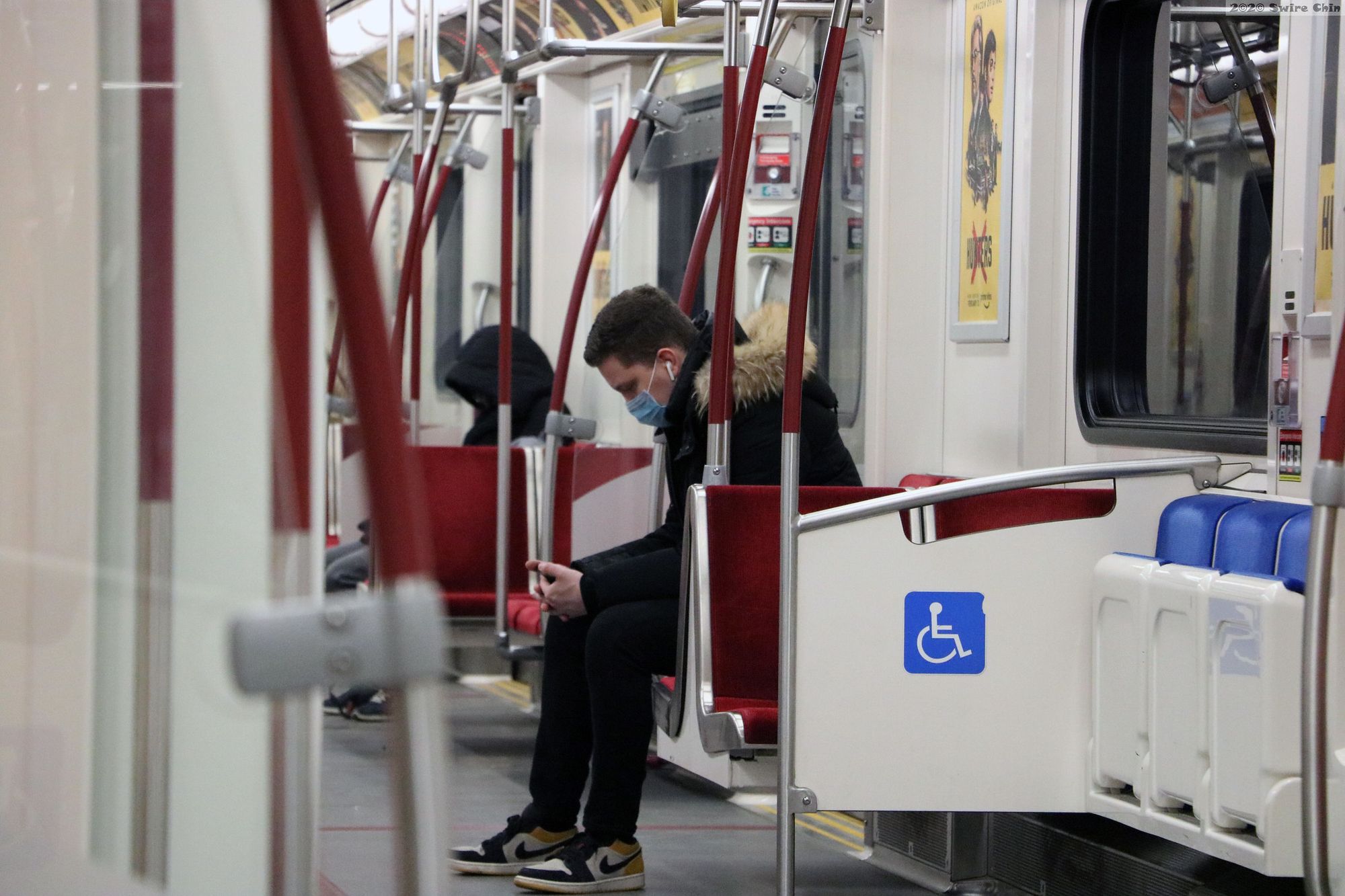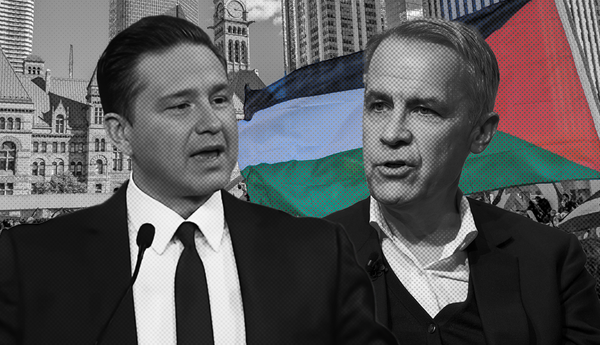COVID-19 has wreaked havoc on workers across the country. The latest figures coming out of Statistics Canada are jaw-dropping, finding that as of April 12, 5.5 million people in Canada were either unemployed or working significantly reduced hours. The system has bottomed out for the second time in 12 years.
In response, the Liberals have implemented a range of programs, ostensibly to help those in need. On May 6, Passage published an article by Christo Aivalis arguing that the New Democratic Party (NDP) deserves credit for dramatically improving these benefits by putting consistent pressure on the Liberals in the name of the working-class.
This argument, as well as a similar one published in Rabble, gives the NDP too much credit. In their response to COVID-19, the NDP has opted for piecemeal solutions to structural problems, insufficient for the clear crisis of capitalism in which we find ourselves.
CERB and a UBI
The Canada Emergency Response Benefit (CERB) program has undoubtedly helped millions cope with COVID-19. Nonetheless, the Liberals’ temporary relief benefit, bolstered by NDP support, has neutered the opportunity for more radical, long-lasting solutions to be promoted during this crisis.
The NDP have missed an important moment to reiterate a call they made in 2019 for a broader restructuring of the employment insurance (EI) program that has been hollowed out through decades of austerity. Focusing on reforming EI would offer a long-lasting safety net for those left unemployed by capitalist crises. Fighting to increase EI payments to something like 90 per cent of previous earnings, instead of 55 per cent with a cap, would make it possible for single people and families to survive more comfortably than the below-subsistence CERB payments. Moreover, according to a study from the Canadian Centre for Policy Alternatives (CCPA), one-third of people unemployed in Canada will receive nothing from EI or CERB.
Unlike the Communist Party of Canada, which called Prime Minister Justin Trudeau out for avoiding EI reform throughout this pandemic, the NDP has been caught up in the moment and succumbed to Liberal half-measures.
Some may argue that the NDP is pushing for CERB to become permanent in the form of a UBI, and this undercuts the idea that they’re focusing on short term measures. However, beyond party leader Jagmeet Singh’s letter to Trudeau, there’s no visible movement to extend CERB beyond four months. It remains to be seen if the NDP will make a principled stand and use their supposed balance of power to push for this measure.
Besides, while a guaranteed annual income can be considered part of a progressive solution to endemic capitalist crises, discussions about UBIs can’t stand alone. In order to afford a UBI program, social safety net expenses would likely be cut. This is why UBI initiatives have been endorsed by some right wingers and other neoliberals.
Massive multinational corporations, insurance companies and private equity firms would love nothing more than to see potentially lucrative sectors of our society, such as healthcare, be replaced by a for-profit system they’re in a position to capitalize on. The UBI is not a way out of this crisis.
CEWS and Courage Pay
The Canada Emergency Wage Subsidy (CEWS) is a measure to use public tax dollars to keep employers afloat by covering up to 75 per cent of an employee’s wage for up to 12 weeks. This is an example of zombie neoliberalism, where the free market becomes increasingly erratic and illogical but nonetheless carries on, supported by the state and other institutions of the bourgeoisie. As such, it’s not surprising that the CEWS enjoys support from the Canadian Federation of Independent Business and the Conservative Party. It’s concerning, however, that the NDP has offered approval for the measure.
Moreover, the NDP have supported this initiative, and called for its expansion, despite the fact that businesses of any size can qualify for this program, there are no conditions on businesses regarding the level of profits accrued during the subsidy period, no obligations for employers to stop firing workers, no end of executive bonus pay and no stipulations to keep workers at home to reduce the spread of the virus.
Relatedly, the party’s push to institute a temporary “courage pay” for essential workers during the pandemic shows they’re not willing to use this moment to struggle for long-lasting changes, such as a $20 per hour minimum wage, which is what’s needed to afford an average apartment without spending more than 30 per cent of one’s earnings, according to a CCPA report. The bonus pay scheme recognizes the importance of frontline workers, but only sees their work as valuable during this moment.
While the NDP supports a $15 an hour minimum wage, there’s hardly any urban area in the country that could allow a full-time, single-income family to live on that amount. As a Rank and File article pointed out last year, even if the NDP had supported a concrete $20 minimum wage by 2023, their momentum would have been a lot greater. This seems even more poignant now, with so many essential workers receiving below subsistence wages.
In short, rather than fighting to shore up the EI system and institute a long-lasting living wage, the NDP has instead offered support for backstopping a temporary relief program and an ever-increasing giveaway to business owners. In the midst of the greatest economic collapse in capitalist history, are we really going to congratulate the NDP for weakly asking for things workers fundamentally need to survive?
On opportunism and posturing
People supporting the NDP throughout this crisis have done so through a liberal lens. By focusing solely or primarily on the NDP’s parliamentary action, they ignore or minimize the role working-class people have had in fighting for better programs, from organizing rent and mortgage cancellations to tuition waiver and student benefit campaigns. The NDP isn’t a vanguard representing the interests of these groups, as it only opportunistically latched on to these types of campaigns after they’d gotten off the ground and became popular.
The NDP also has a tendency to support the bourgeois’ agenda when in power. In British Columbia, for example, they’ve been padding landlords’ pockets through rent subsidies, a far cry from the radical agenda of which they purport to be in favour. In Alberta, where they’re a relatively strong opposition force, the NDP is calling for more support for business and landlords.
The NDP positions itself as an alternative to the Liberal Party, but does so by proposing policies only slightly different than the status quo. This has a detrimental material impact for a beleaguered working class, who are objectively hurt by the NDP’s support for the corporate agenda. It also has a negative ideological impact by failing to broaden the spectrum of acceptable ideas within Parliament.
Unlike the Liberals, a ruling class party buoyed by well-to-do middle- and upper- class urbanites, the NDP’s base is largely made up of unionized workers, marginalized and dispossessed groups, and working-class Canadians. This is why it’s so alarming that during a monumental economic collapse, the NDP has inexplicably endorsed an agenda that promotes further wealth accumulation for the rich.
The band aid solutions promoted amidst the last financial collapse left working people in dire straits. If the NDP is truly interested in a more egalitarian, healthy and productive society, now is the time for them to promote and organize around system change.






